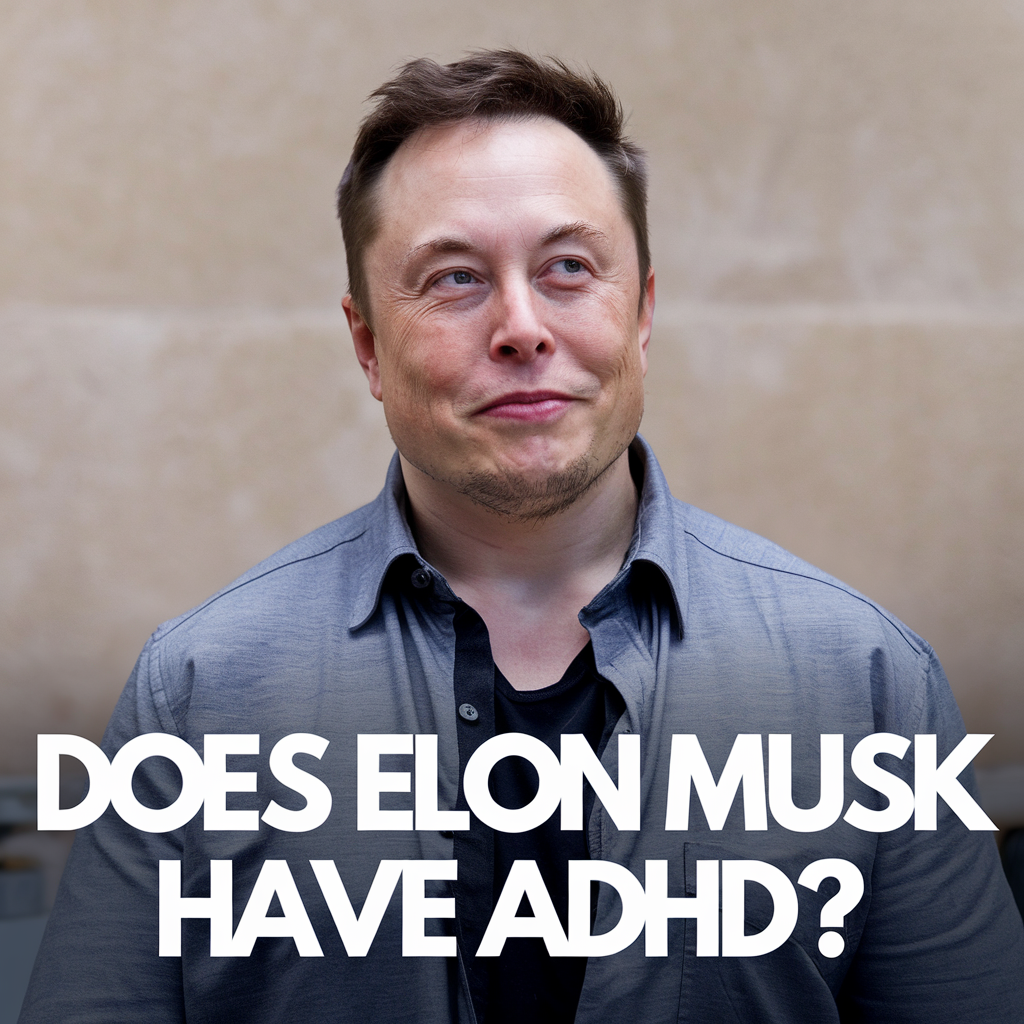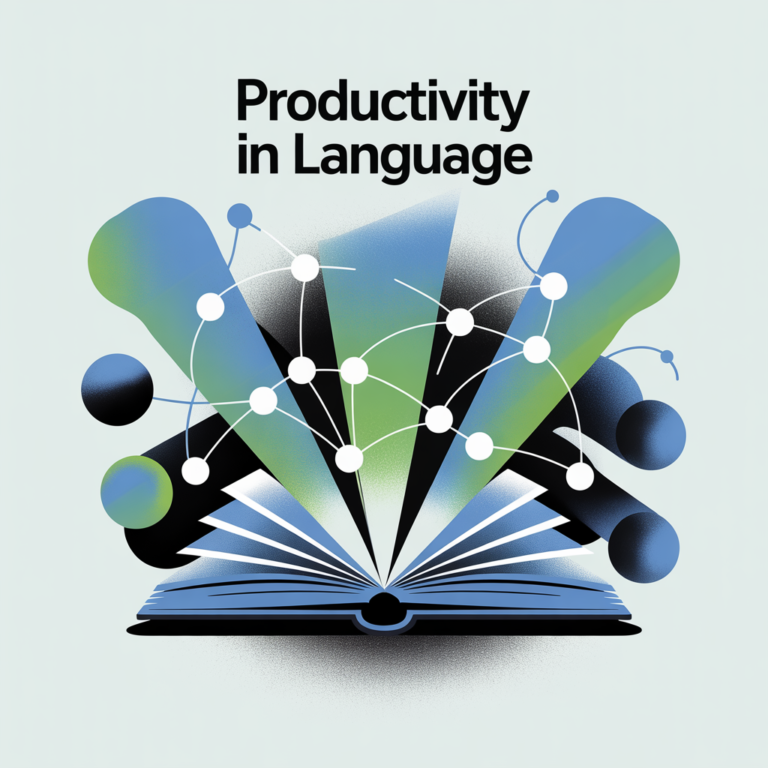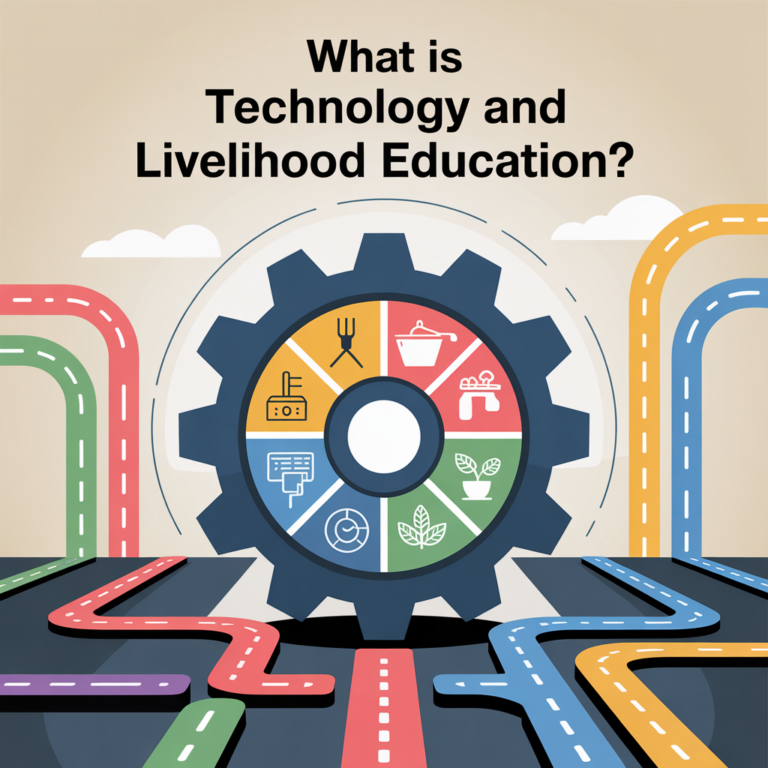Elon Musk, one of the most talked-about entrepreneurs and visionaries of our time, has consistently captured public attention due to his groundbreaking achievements and eccentric personality. From revolutionizing the electric vehicle industry with Tesla to dreaming of colonizing Mars through SpaceX, Musk’s ambitious endeavors have sparked both admiration and curiosity. Among the various discussions surrounding his persona, a recurring question arises: “Does Elon Musk have ADHD?” This article delves into the topic by exploring Musk’s behavior, professional achievements, and possible signs of ADHD while examining ADHD as a neurodevelopmental condition. We will also touch on Musk’s own statements, expert opinions, and what this could mean for individuals who resonate with his mindset and work ethic.
What is ADHD?
Before addressing whether Elon Musk has ADHD, it is crucial to understand what ADHD is. Attention Deficit Hyperactivity Disorder (ADHD) is a neurodevelopmental condition characterized by symptoms such as difficulty focusing, hyperactivity, and impulsivity. It often affects children and can persist into adulthood, impacting various aspects of life, including education, careers, and relationships.
Symptoms of ADHD
ADHD typically manifests in three primary ways:
- Inattention: Struggling to maintain focus on tasks, frequently losing track of details, and being easily distracted.
- Hyperactivity: Restlessness, difficulty sitting still, and the urge to be constantly on the move.
- Impulsivity: Acting on impulse without thinking about the consequences and struggling with self-control.
These traits can manifest differently in each individual. For highly driven and creative people, ADHD may sometimes be perceived as a superpower that fuels their accomplishments.
Understanding Elon Musk’s Behavior and Personality
Elon Musk is renowned for his intense focus, drive, and unrelenting work ethic. He has publicly shared stories of working 80 to 100 hours per week, sometimes even sleeping on factory floors to stay on top of operations. At the same time, Musk is also known for his spontaneous and unpredictable nature, which occasionally sparks controversy.
Hyperfocus and ADHD
One common trait associated with ADHD is hyperfocus, which refers to a person’s ability to concentrate deeply on activities they are passionate about, often at the expense of everything else. Musk’s approach to work closely aligns with hyperfocus. His ability to dive headfirst into complex projects like reusable rockets, electric vehicles, and artificial intelligence demonstrates a laser-sharp focus that some associate with ADHD.
For instance:
- Musk famously taught himself rocket science to start SpaceX, immersing himself in technical manuals and conversations with experts.
- He has managed to simultaneously run multiple companies, including Tesla, SpaceX, Neuralink, and The Boring Company, which demands intense cognitive focus.
- Musk’s obsession with solving humanity’s grand challenges often drives him to work tirelessly, disregarding normal work-life balance.
This level of hyperfocus could be interpreted as a possible ADHD trait.
What Has Elon Musk Said About ADHD?
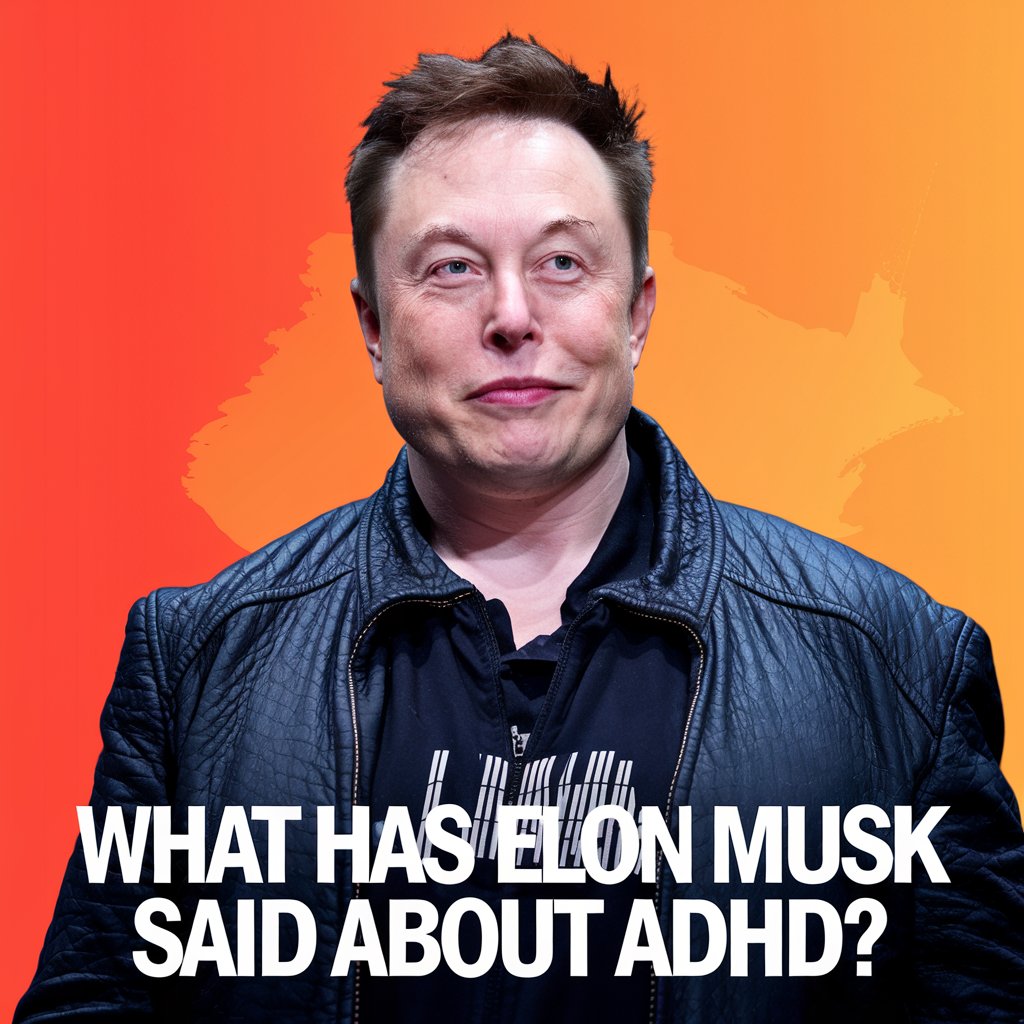
To date, Elon Musk has not publicly confirmed that he has ADHD. However, he has made several statements about his mental health, energy levels, and work habits that leave room for speculation.
In 2021, during his appearance on the comedy show Saturday Night Live, Musk openly revealed that he has Asperger’s syndrome, a condition on the autism spectrum. Asperger’s can lead to challenges in social interaction and communication while often coexisting with traits of ADHD, such as hyperfocus and impulsive behaviors.
Musk’s statement clarified:
“I’m the first person with Asperger’s to host SNL… or at least the first to admit it.”
While Asperger’s and ADHD are distinct conditions, they share overlapping characteristics like unconventional thinking, intense focus, and difficulties with certain social cues. This has fueled further speculation that Musk might also display signs of ADHD.
Why Do People Think Elon Musk Might Have ADHD?
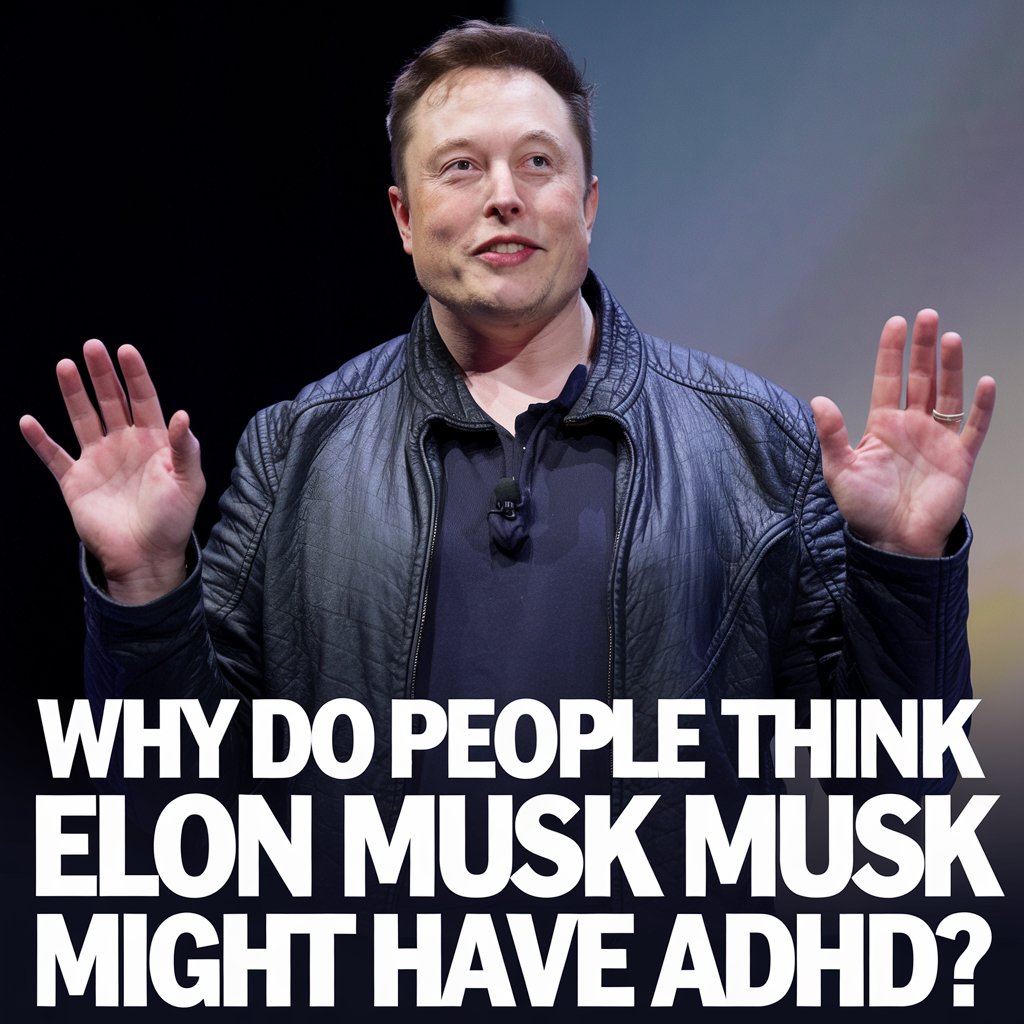
The speculation surrounding Musk’s possible ADHD stems from his visible traits and behavior patterns. Below are key reasons why people think Musk might have ADHD:
1. Restlessness and High Energy
Elon Musk is described as having boundless energy. His packed schedule and constant drive to innovate reflect a personality that struggles to remain idle. People with ADHD often display physical and mental restlessness, which aligns with Musk’s work habits.
2. Impulsivity and Risk-Taking
Musk is no stranger to risk. Starting companies like Tesla and SpaceX required taking massive financial and personal risks. Similarly, his social media presence, particularly on Twitter, is often impulsive, leading to controversial posts that have financial or reputational consequences.
3. Innovative and Divergent Thinking
ADHD is often linked with creative and out-of-the-box thinking. Musk’s vision for the future — from reusable rockets to brain-computer interfaces — reflects divergent thinking, a common strength in people with ADHD.
4. Ability to Hyperfocus
As mentioned earlier, Musk’s ability to hyperfocus on complex topics like rocket engineering and artificial intelligence aligns with traits commonly seen in individuals with ADHD.
5. Challenges with Work-Life Balance
Musk has admitted that his work habits can be extreme. He once told The New York Times:
“There were times when I didn’t leave the factory for three or four days — days when I didn’t go outside. This has really come at the expense of seeing my kids and friends.”
Many individuals with ADHD struggle with prioritization and can hyperfocus on work while neglecting personal well-being and relationships.
ADHD and High Achievers: A Connection?
ADHD has often been associated with successful entrepreneurs, innovators, and creative individuals. The energy, risk tolerance, and out-of-the-box thinking that characterize ADHD can also drive achievement when channeled effectively.
How ADHD Can Be a Strength for Visionaries
- Creativity: People with ADHD often think in unconventional ways, which fuels innovation.
- Resilience: Challenges associated with ADHD can build perseverance, a trait evident in Musk’s ability to overcome setbacks.
- Passion and Drive: Hyperfocus allows individuals with ADHD to excel in areas they are deeply passionate about.
- Risk-Taking: Entrepreneurs with ADHD are often more willing to take bold risks, which is essential for groundbreaking ventures.
These strengths are visible in Elon Musk’s career, further reinforcing speculation about whether he may have ADHD.
Musk’s Contributions: Does ADHD Matter?
Whether or not Elon Musk has ADHD, his contributions to technology and society are undeniable. The speculation about his neurodevelopmental traits highlights a broader conversation about neurodiversity in leadership and innovation.
Musk’s achievements include:
- Tesla: Leading the electric vehicle revolution and pushing for sustainable energy.
- SpaceX: Pioneering affordable space travel and dreaming of a multi-planetary future.
- Neuralink: Exploring brain-machine interfaces to advance neuroscience and help people with neurological disorders.
- The Boring Company: Innovating underground transportation solutions to solve urban congestion.
These accomplishments show that traits commonly associated with ADHD, such as hyperfocus and risk-taking, can be harnessed as strengths.
Neurodiversity: Embracing Differences in Modern Workplaces
The discussion around Musk and ADHD raises awareness about neurodiversity — the concept that neurological differences like ADHD, autism, and dyslexia are natural variations of the human brain. Embracing neurodiversity allows individuals to leverage their unique strengths and perspectives.
Advantages of Neurodiverse Individuals in Leadership
- Innovation: Different thought processes lead to unique solutions and ideas.
- Resilience: Overcoming challenges builds mental toughness and adaptability.
- Energy and Enthusiasm: Neurodiverse individuals often bring unmatched passion and energy to their work.
Organizations are increasingly recognizing the value of neurodiversity and creating inclusive workplaces that celebrate differences.
Elon Musk as an Inspiration for ADHD Individuals
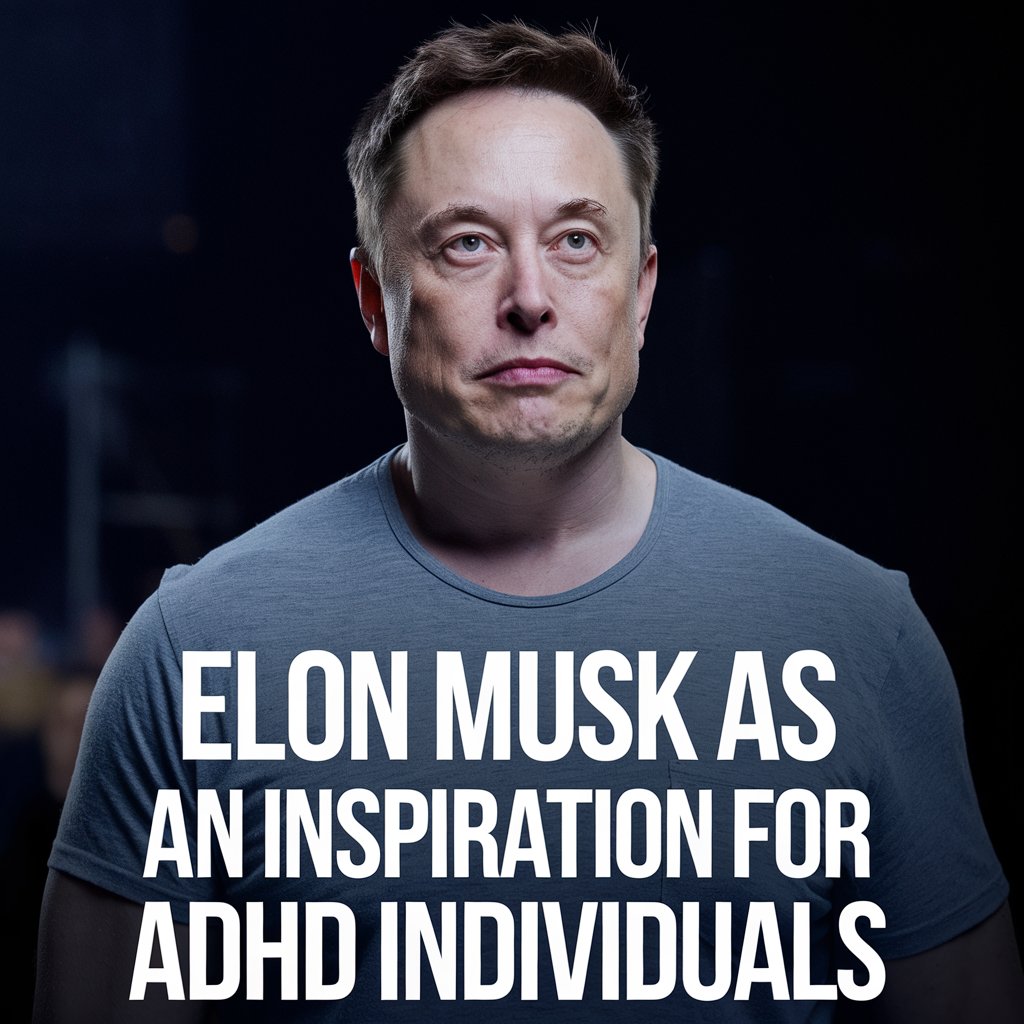
For individuals diagnosed with ADHD, Elon Musk serves as an inspirational figure who demonstrates that unconventional traits can fuel extraordinary success. His story shows that being different is not a limitation but a potential strength when channeled effectively.
Key takeaways for individuals with ADHD include:
- Find Your Passion: Musk’s success stems from his passion for solving big problems. Focus on what truly excites you.
- Embrace Hyperfocus: Use your ability to hyperfocus as a tool for deep learning and productivity.
- Take Calculated Risks: ADHD can foster risk-taking, which, when managed well, can lead to innovation.
- Build Resilience: Learn from failures and setbacks, just as Musk has done throughout his career.
Final Thoughts: Does Elon Musk Have ADHD?
While Elon Musk has never officially confirmed whether he has ADHD, his behavior, achievements, and personality traits align with certain ADHD characteristics, such as hyperfocus, restlessness, and impulsivity. It is also important to note that Musk has openly stated he has Asperger’s syndrome, which may contribute to some of these traits.
Ultimately, the question “Does Elon Musk have ADHD?” is secondary to the broader message his life conveys: unique minds, regardless of labels, can achieve extraordinary things. Whether or not Musk has ADHD, his story inspires millions to embrace their differences, think boldly, and pursue their dreams with unwavering determination.
For individuals with ADHD or other neurodiverse conditions, Elon Musk’s journey serves as a reminder that unconventional traits can be leveraged as strengths in the pursuit of greatness. Does Elon Musk have ADHD? Whether he does or not, his legacy underscores the power of passion, creativity, and resilience in changing the world.
Frequently Asked Questions
1. What is ADHD and how does it relate to Elon Musk?
ADHD is a neurodevelopmental disorder characterized by inattention, hyperactivity, and impulsivity. Elon Musk displays traits like hyperfocus, restlessness, and creativity that align with ADHD characteristics, fueling speculation.
2. Has Elon Musk confirmed having ADHD?
No, Elon Musk has not publicly confirmed having ADHD. However, he has revealed that he has Asperger’s syndrome, which shares some overlapping traits with ADHD.
3. What is hyperfocus, and does Elon Musk display it?
Hyperfocus is an intense concentration on specific tasks or interests, often seen in individuals with ADHD. Musk’s deep focus on complex projects like SpaceX and Tesla strongly aligns with this trait.
4. How does Asperger’s syndrome differ from ADHD?
Asperger’s is part of the autism spectrum, affecting social interaction and communication, while ADHD primarily involves inattention and hyperactivity. Both can coexist, sharing traits like unconventional thinking and focus challenges.
5. Why do people think Elon Musk might have ADHD?
Musk’s impulsivity, hyperfocus, risk-taking, and boundless energy align with ADHD characteristics, sparking speculation about whether he has the condition.
6. How has Musk’s behavior contributed to this speculation?
Musk’s intense work habits, spontaneous actions, and unconventional thinking have led people to associate him with traits often linked to ADHD.
7. Can ADHD be a strength for entrepreneurs like Musk?
Yes, ADHD traits like creativity, risk-taking, and hyperfocus can be strengths when channeled effectively, leading to innovation and success.
8. What can people with ADHD learn from Elon Musk?
Musk’s journey inspires individuals with ADHD to embrace their passions, use hyperfocus to their advantage, and view unconventional traits as strengths.
9. What are some signs of ADHD visible in Musk’s work habits?
Traits such as hyperfocus, impulsivity, and restlessness, along with his extreme work-life imbalance, align with ADHD characteristics.
10. Does it matter whether Elon Musk has ADHD?
Ultimately, whether or not Musk has ADHD is less important than the broader message his life conveys: unique traits can be powerful tools for success.

